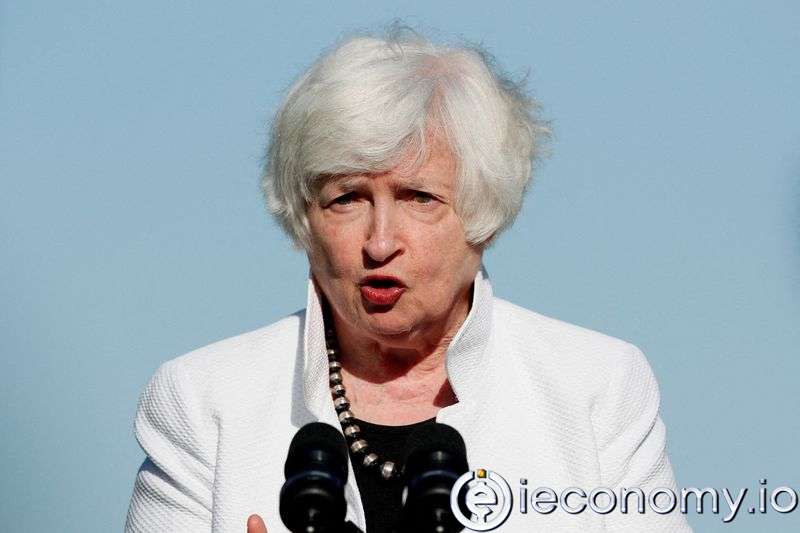10135
0
Yellen says US Economy is Slowing but Recession not Inevitable
US Treasury Secretary Janet Yellen acknowledged on Sunday that US economic growth is slowing and there is a risk of recession...

Yazar: Charles Porter
Yayınlanma: 25 Temmuz 2022 03:58
Güncellenme: 2 Mart 2026 19:49
Yellen says US Economy is Slowing but recession not inevitable
US Treasury Secretary Janet Yellen acknowledged on Sunday that US economic growth is slowing and there is a risk of recession, but said a downturn was not inevitable.
Speaking on NBC's "Meet the Press" program, Yellen said strong US hiring figures and consumer spending showed the US economy was not currently in recession. US hiring remained strong in June, adding 372,000 jobs and keeping the unemployment rate at 3.6%. This was the fourth straight month of job growth in excess of 350,000. "This is not an economy in recession," said Yellen, who previously chaired the Federal Reserve. "But we are in a transition period where growth is slowing, and that is necessary and appropriate." Still, data released last week showed the labor market softening, with new jobless claims reaching their highest point in eight months. Yellen said inflation was "very high" and the Fed's recent rate hikes had helped contain rising prices. In addition, the Biden administration is selling oil from the Strategic Petroleum Reserve and Yellen said that this has helped lower gas prices. "We've seen gas prices drop about 50 cents (per gallon) in just the last few weeks, and there should be more in the pipeline," she said. Yellen, a former Fed chairwoman, hopes the central bank can cool the economy enough to lower prices without triggering a broad economic downturn. "I'm not saying we will absolutely avoid a recession," Yellen said. "But I think there is a path that keeps the labor market strong and inflation down." US GDP shrank at an annualized rate of 1.6% in the first quarter and the report due on Thursday is expected to show an increase of just 0.4% in the second quarter, according to economists polled by Reuters. Yellen said that even if the second-quarter figure was negative, it would not signal a recession given the strength in the labor market and strong demand. "A recession is broad-based weakness in the economy. We're not seeing that right now," he said. Economists traditionally define a recession as two consecutive quarters of economic contraction, but the private group considered the official arbiter of recessions in the US looks at a wide range of indicators.İLGİLİ HABERLER





European stocks soared and focus shifted to German retail sales after Powell's speech!

Forex Signal For TRY/USD: Inflation Slowdown in November.

Forex Signal For GBP/USD: Bullish Trend Still Not Breaking While Recovery Continues.

Forex Signal For EUR/USD: Starry US Data Points to Higher Fed Increases.

Forex Signal For BTC/USD: Downside Continues as Bitcoin Recovery Moves Less.
En Popüler Haberler
Yorum Yap
Yorumlar
Henüz yorum yapan yok! İlk yorumu siz yapın...